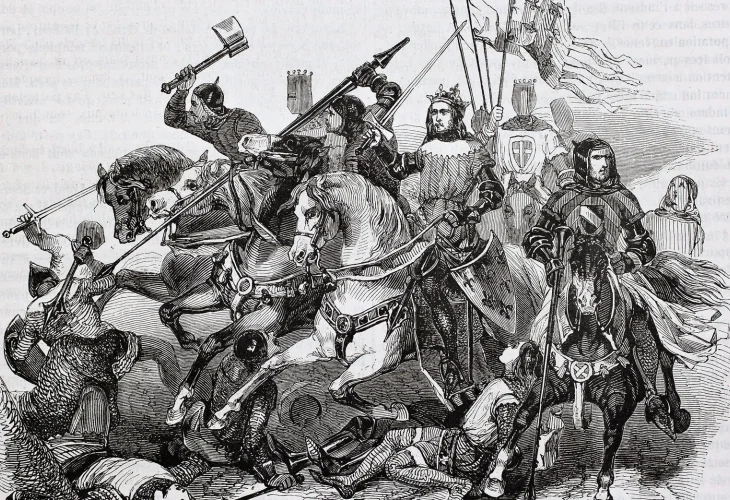The Forgotten Tragedy: Precursor to the Jewish Expulsion from Spain
In the late 14th century, tensions arose between the monarchy and numerous nobles in Spain, leading to Jews being targeted. Both sides accused Jews of supporting their opposition.
 (Illustration: shutterstock)
(Illustration: shutterstock)The phenomenon of Spanish Anusim (crypto-Jews) is often associated with the expulsion of the Jews from Spain. However, historically, it began much earlier—more than a hundred years prior to the expulsion.
Jews in Spain enjoyed a degree of autonomy since the time of Muslim rule. They lived in their own neighborhoods and had their rights protected by law. As the Catholic rule in Spain strengthened, there were increasing calls to strip Jews of their rights, prevent them from practicing their religion, or force them to convert to Christianity, the "true faith."
In the late 14th century, tensions arose between the Spanish monarchy and the many nobles, and as in many similar situations, the Jews paid the price. Each side accused the Jews of supporting the other. Bishops, who thrived on this tension, incited the masses against the Jews. On Rosh Chodesh Tammuz 1391, after a fiery sermon by Bishop Ferrand Martinez, riots broke out against the Jews of Seville. Jews were murdered, their homes set on fire, the synagogue was destroyed, some Jews were sold as slaves at sea ports, and some converted.
In the following months of Tammuz and Av, the riots spread to other major cities in Spain: Andalusia, Castile, and Valencia. In Valencia, 250 Jews were murdered on the 7th of Av. The Barcelona community was completely decimated. In Toledo, Rabbi Judah, the grandson of the Rosh, was killed with his family and students.
Until that time, Jews relied on the king's protection, but King Juan I of Castile had died, leaving behind a child as his successor. The country was run by officials who did not bother to stop the riots. Nearly half of the Spanish Jews were forced to convert to Christianity. A large portion remained Anusim, staying loyal to Judaism in their hearts, while others turned their backs. One such convert was Solomon Halevi, the rabbi of Burgos, who became a Catholic close to the Pope and wrote extensively against the Jews. Conversely, his wife Juana refused conversion and stayed among her Jewish brethren.
Rabbi Yitzhak ben Moshe HaLevi, another wise man of Spain, was forced to convert outwardly but remained a loyal Jew, continuing to write books that received acclaim from future rabbinic authorities. One such book was the "Ha'Ephod," praised by the Vilna Gaon.
The neighboring King of Aragon, whose advisor was the eminent Jew Rabbi Chasdai Crescas, wanted to assist the Jews but also struggled to contain the rioters supported by the aristocracy and the Christian religion. He brought some rioters to trial and sentenced them to hanging. However, for the masses of crypto-Jews, there was no relief. According to strict Christian laws, anyone who converted could not return to Judaism, compelling them to live as Christians officially for the rest of their lives.
During those days, two of the greatest Jewish scholars left Spain: Rabbi Yitzhak Bar Sheshet and Rabbi Shimon ben Tzemach (the Rivash and the Rashbatz). They crossed the Strait of Gibraltar and settled in North Africa, where they profoundly influenced Moroccan and Tunisian Jewry for generations.
Another prominent family left Spain due to these decrees. Known in Spain as the Halevi family, they included Rabbi Zerachiah HaLevi, author of "Ba'al HaMaor," a descendant of Heman HaLevi, a poet of the Holy Temple. The Halevi family settled in the town of Horovice near Prague and became one of the important families in Eastern Europe. Their descendants included many scholars and notable figures, ranging from the Shelah HaKadosh and the Ba'al HaHafla'ah to Nobel Prize-winning American biologist Robert Horowitz.
These events are less remembered in history because they were followed by many other calamities, leading up to the expulsion from Spain, which left a significant mark on Jewish history, expelling all Jews who refused to convert.

